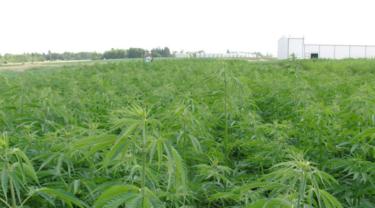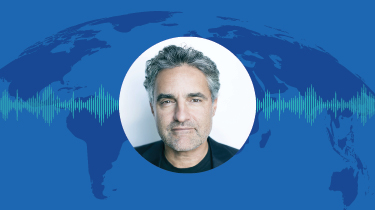Robert Rae was in the right place at the right time when there was a spike in demand for hulled hemp seeds from South Korea. But Rae’s ability to respond immediately and take advantage of the business opportunity was due to his background in logistics management and the strong relationships he had built with partners in his value chain.
Rae established Canada Hemp Foods (CHF) in 2006 in Gibsons, British Columbia after he found the addition of hemp seed to his own diet soothed a skin condition, a side effect of his successful battle with stage-4 non-Hodgkin’s lymphoma.
The company was conceived as an export business and including “Canada” in its name was designed to take advantage of the halo effect of “brand Canada” in overseas markets.
With the Netherlands in his sights, Rae purchased 450 kg of hemp seed to export, but quickly discovered the tariffs and import restrictions were so onerous that it would have been difficult to be successful in the European market. He pivoted and sold the hemp locally, and decided to focus on domestic sales before tackling the export market again. Although he sold some product in the U.S., it took a longer-than-expected seven years before he again explored the markets outside North America.
In 2013, he connected with a Seoul-based buyer who imported a shipment of hemp seed and sold it online. Two years later, sponsored by the British Columbia Ministry of International Trade, CHF participated in the Seoul Food Show.
“We didn’t get any orders, but we certainly got some interest,” Rae recalls.
In October 2015, he received an order from a South Korean company for a 20-foot container of hemp seed.
“We scrambled and got a processor we were working with to put it together. We put the hemp seed in 2,000-pound bags, loaded them into a container, did all the certifications, inspections and manufacturer’s declarations, and off it went. We shipped in November 2015,” says Rae, who leaned heavily on his experience as a ships’ agent, his career prior to his illness in 2004.
The hemp seeds were packaged by Welcome LS in South Korea and featured on the Hyundai TV home shopping channel in January 2016. The 66,000 150-gram units – grouped in 11-unit packages – sold out in just 20 minutes.
Rae says the hulled hemp seeds appealed to South Koreans on several levels.
“They were seen as safe, healthy and a beauty enhancer,” he says. “Beauty is the No. 1 consideration in [South] Korea. They want to look good and they want to be healthy. The product was easy to use, very easy to eat. They demonstrated it on the shopping channel and just sold the heck out of it,” he says.
Word of the product’s success spread quickly.
“Everybody got on the bandwagon. Every home shopping channel decided they had to have hemp seed on their channel, and the next thing you know there’s a gold rush of hemp seed pouring into [South] Korea,” says Rae.
CHF rode the wave because its logistics were superior, says Rae. “The processor couldn’t keep up. They were running two shifts a day, seven days a week, for four months and we still couldn’t meet the demand. We even supplied some product by air freight – we half-filled a 747 – because there was such a demand.”
Rae estimates CHF had about half the burgeoning market, working with 70 per cent of the importers. To illustrate the extraordinary demand Rae says from April to December 2016, CHF’s largest customer, Hanwha Corporation, ordered 33 shipments worth more than $6-million.
Kim Shukla, executive director of Canadian Hemp Trade Alliance, says the demand for hemp seeds from South Korea took the Canadian supply chain by surprise.
“We were focused on the demand from the U.S. and didn’t have our eye on other markets,” she says. “This is typical with any new or evolving crop and as we mature in our capabilities and the long term development of markets it will take away some of that volatility.,”
Looking at the statistics it’s obvious just how much of an impact the sales in South Korea had on the agri-industry. In 2016 Canada exported hemp products worth $65 million to the U.S., similar to the $67 million exported in 2015. In 2016, exports to South Korea were $44 million, up from only $606,000 in 2015. Sales to other countries were minimal with Netherlands coming a distant third, importing only $6 million of hemp product.
Shukla praises Rae’s ability to take advantage of the surge in demand from South Korea. “He had strong partners along the value chain. He had [everyone] in place so they could respond on a dime. He had put a lot of effort into building those partnerships and people like dealing with Robert, he’s an upfront, straight-shooter type person,” she observes.





